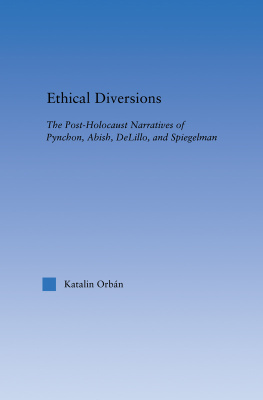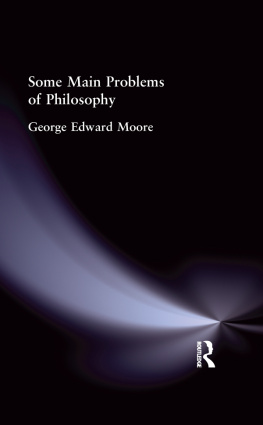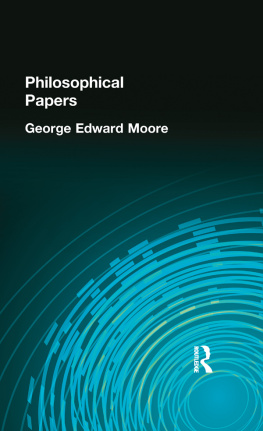First Published 1994 by Garland Publishing, Inc.
Published 2015 by Routledge
2 Park Square, Milton Park, Abingdon, Oxon OX14 4RN
711 Third Avenue, New York, NY 10017 USA
Routledge is an imprint of the Taylor & Francis Group, an informa business
Copyright 1994 by Edward Erwin, Sidney
Gendin, and Lowell Kleiman
All rights reserved
Library of Congress Cataloging-in-Publication Data
Ethical issues in scientific research : an anthology / by
Edward Erwin, Sidney Gendin, and Lowell Kleiman.
p. cm. (Garland studies in applied ethics ;
vol. 2) (Garland reference library of social science ;
vol. 814)
ISBN 0-8153-0641-5 (alk. paper)
ISBN 0-8153-1790-5 (pbk.)
1. ResearchMoral and ethical aspects. 2. Fraud in
science. I. Erwin, Edward, 193 7- . II. Gendin,
Sidney. III. Kleiman, Lowell, 1942 - . IV.Series:
Garland studies in applied ethics ; v. 2. V. Series:
Garland reference library of social science ; v. 814.
Q180.55.M67E83 1994
174.95072dc20
93-37482
CIP
ISBN 978-0-203-76513-5 (eISBN)
Cover design by Patti Hefner
Cover photo: FPG/Mason Morfit
Is ethics a science? Are any of its hypotheses true? Do we know which ones are true? Skeptics say no, moralists yes, while others, call them cognitivists, try to have it both ways. For example, some cognitivists distinguish between moral and other value judgments and hold that only the latter can be known to be true. We can determine, for example, that a certain athlete is a good track runner or that one university has a better chemistry department, but not be able to prove that athletic discipline itself is a moral virtue or that manipulating experimental data a moral vice. So one need not be skeptical of all values to be skeptical of morality.
Skepticism of moral belief, judgment, and theory is a dominant motif in Western philosophy, at least since David Hume in the eighteenth century. Hume admitted that moralists argue for their moral beliefs just as theists argue for their religious beliefs. But just as religious premises have no support outside of other religious assumptions, so moral premises have no support outside of other moral assumptions. The field of ethics might suitably be compared not to a science but to eighteenth-century metaphysics as described by Immanuel Kant:
We do not find men confident of their ability to shine in other sciences venturing their reputations here, where everybody however ignorant in other matters may deliver a final verdict, as in this domain there is as yet no standard weight and measure to distinguish sound knowledge from shallow talk. (Prolegomena to Any Future Metaphysics)
But Kant was not a skeptic; rather, he argued that moral principles could be known through pure reason. Other cognitivists appeal to intuition, arguing that in logic and mathematics we also rely on intuitions. Others argue that even without special intuitions, we can observe when something is wrong. For example, we can see that torturing a human being is immoral.
Carl Hempel, in his paper Science and Human Values, criticizes the cognitive approach. Hempel agrees that a hypothetical judgment of value, such as If our children are to become happy, then it is better to raise them in a permissive manner, can be confirmed by scientific evidence. He denies, however, that this is possible for a categorical judgment, such as Killing is evil. He claims that such a sentence fails to express an assertion that is either true or false. Despite his moral skepticism, Hempel agrees that the acceptance of scientific judgments presupposes certain value judgments, and that science can play a role in clarifying and resolving problems of moral valuation.
Michael Scriven, in The Exact Role for Value Judgments in Science, argues that even categorical value judgments can be confirmed. He claims that science itself is essentially evaluative, that the practice of good science requires the evaluation of experimental designs, theories, observations, explanations, and estimates. Science, according to Scriven, is neither value-free nor morally neutral.
Within the broader issue of the relation between science and values is the conflict between consequentialists, those who believe that the morality of an action is determined solely by its effects and deontologists, theorists who believe otherwise. For example, a deontologist would condemn the use of placebos in human experimentation if experimenters have an obligation not to deceive their subjects. By contrast, the utilitarian (a consequentialist who emphasizes social well-being) would overlook the deception if the use of placebos did more good than harm.
Although traditional utilitarian and deontologist approaches seem to conflict, Nicholson, Hare et al. suggest a way for bringing both sides together. At the practical level, the deontologist can appeal to moral principles about peoples rights and duties. Thus, an ethics committee can reject a proposal for research that ignores the patients right to give informed consent. However, at the theoretical level, principles of obligation that otherwise appear intuitive can conflict. For example, in AIDS research we have a duty to try to help current patients, as well as an obligation to help future victims. But we cannot always do both, especially if helping current patients compromises the interests of future victims, for example, by relaxing experimental standards in order to bring a drug more quickly to market. Here Nicholson, Hare et al. suggest a utilitarian resolution: relax the standards if that would save more lives and relieve more suffering. The problem, however, is, if we are willing to rely on utilitarian standards at the theoretical level, why turn away from those same standards at the so-called practical level? More must be said about the theoretical/practical distinction before a genuine resolution can be achieved.






